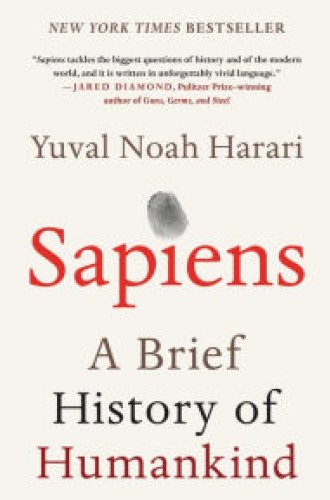Faith makes us human
Somewhere along the evolutionary line, a bipedal ape developed an astonishing level of consciousness of a quality that set it apart from its similarly large-brained relatives. Sapiens is about how that thinking primate transformed the world.
Along the way, Yuval Noah Harari makes this claim: the key to humanness is faith, or the ability to believe in things that aren’t physically there. Abstract notions were impossible for our nearest primate relations, and abstract thinking set the stage for everything that came afterward: the agricultural revolution; science and discovery; cooperation in government, religion, and economics—all because imaginary constructs allow us the “unprecedented ability to cooperate flexibly in large numbers.”
Harari tells us that all the great achievements of humanity—trade, money, corporations, religion, government, science, philosophy, mathematics, literature, music and art, rights and laws, contracts, even relationships—rely on our faculty to create and trust abstractions, a talent that may have first been displayed in religious faith.





